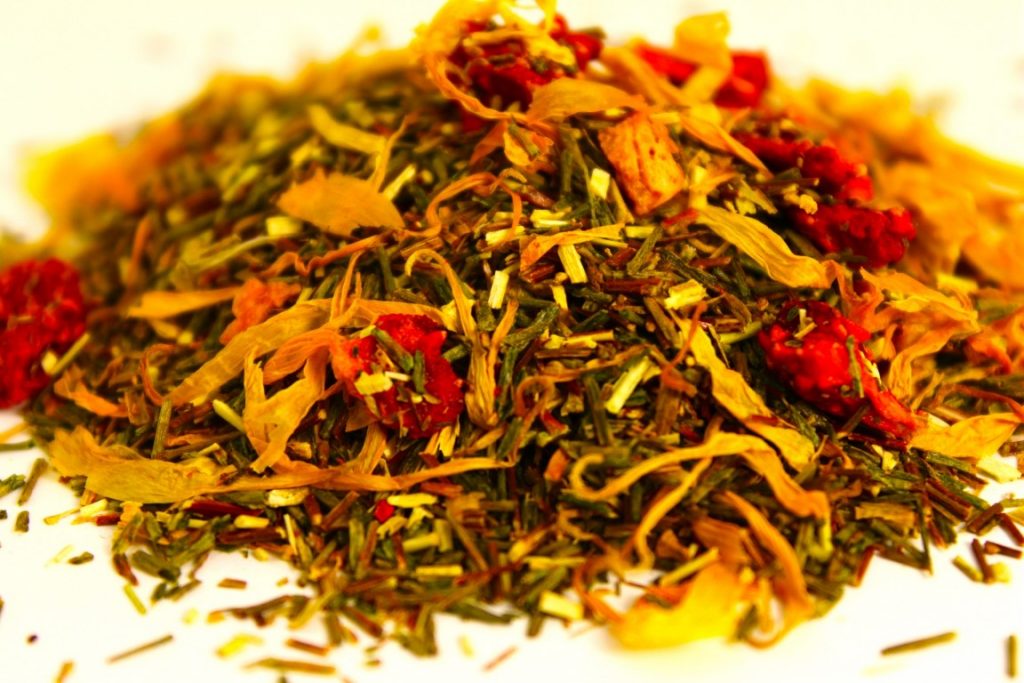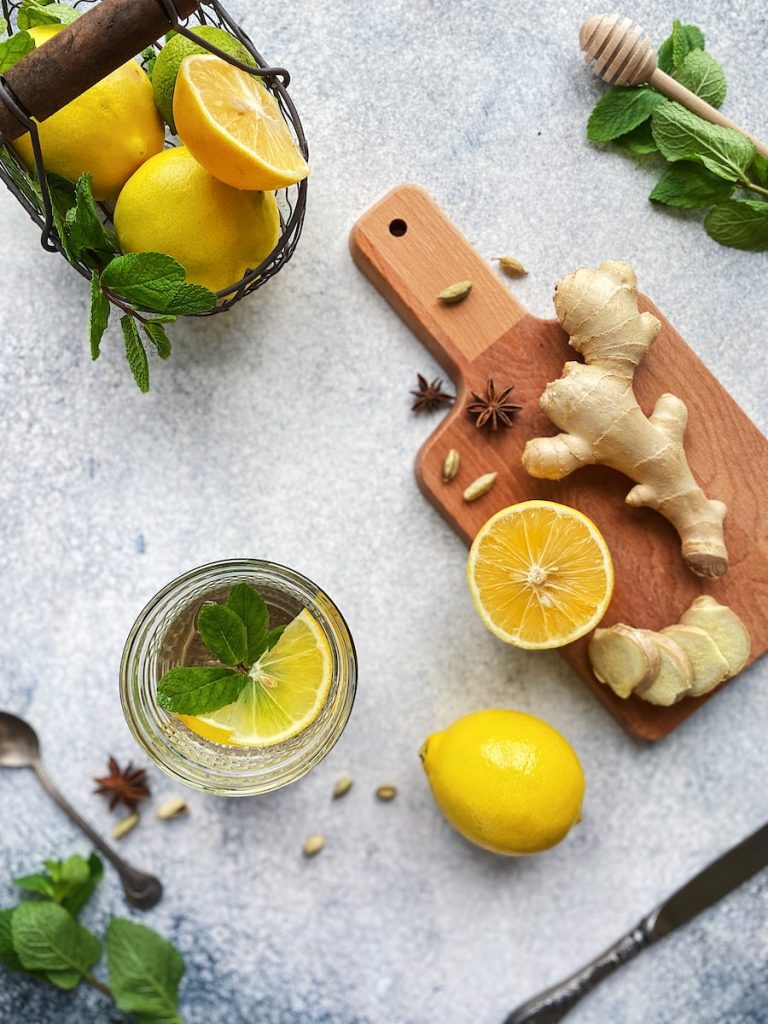Table of Contents
- Introduction to our guide on Calories in Fruit Tea
- 1. Fruit Tea Varieties and Calorie Content
- 2. Health Benefits of Fruit Tea
- 3. Factors Influencing the Calorie Content of Fruit Tea
- 4. The Best Low-Calorie Fruit Tea Recipes
- 5. The Difference Between Fruit Tea and Herbal Tea
- 6. How to Add Fruit Tea to Your Diet for Weight Loss
- Frequently Asked Questions about Fruit tea and calories
- Is There Anything Bad About Drinking Fruit Tea?
- Conclusion to calories in fruit tea
Introduction to our guide on Calories in Fruit Tea
As a true lover of this incredible beverage, I’m always looking for new ways to enjoy it. Fruit tea is one such way that has quickly become popular among aficionados and casual drinkers alike—but how many calories are actually in each cup of fruit tea?
Whether you’re trying to watch your weight or are just curious about what goes into your favorite drinks, understanding the calorie content of fruit teas can be an eye-opening experience. From light herbal blends to full-bodied black varieties, there’s something for everyone when it comes to flavor and nutrition.
In this article, we will explore the calorie content of various types of fruit teas so readers can make informed decisions about their beverage choices. So pour yourself a cup and let’s dig in!
1. Fruit Tea Varieties and Calorie Content
A steaming cup of tea is like a gentle hug—it can make you feel calm, comforted, and relaxed. When the tea contains real fruit pieces, that feeling is even more powerful! Fruit teas come in all sorts of combinations to tantalize your taste buds, but how many calories are they packing? Let’s explore some different types of fruit teas and the calorie counts associated with them.

The classic raspberry-lemon combination is a favorite for many tea drinkers; this fruity blend packs about 15 calories per 8 ounces. If you’re looking for something sweet yet subtle, try chamomile peach; it has around 10 calories per 8 ounces. Mango pineapple may be just the thing for those looking for something truly unique: with only 5 calories per 8 ounces, it’s both flavorful and light.
No matter which type of fruit tea you prefer, there’s no doubt that these tasty beverages can add an extra layer of pleasure to any day. Whether you’re sipping on raspberry-lemon juice or going bold with mango and pineapple, enjoy knowing that as long as your portion sizes stay modest, your waistline won’t suffer either!
2. Health Benefits of Fruit Tea
Fruit tea is a delightful way to enjoy the flavors of nature! Not only does it taste great, but there are some amazing health benefits associated with drinking this scrumptious beverage. Let’s explore three of them!
Firstly, fruit teas contain antioxidants, which can help improve your overall well-being. These powerful compounds fight off damaging free radicals and boost immunity. Plus, they’re loaded with vitamins and minerals that promote healthy skin and hair growth.
Secondly, many types of fruit tea have anti-inflammatory properties. This means that sipping on these fruity beverages can reduce inflammation in the body, helping you feel better both inside and out! And since most varieties are naturally caffeine-free, you won’t get those late-night jitters either.
Last but certainly not least, drinking fruit tea has been found to aid digestion. Whether you’re dealing with an upset stomach or just looking for something to settle your tummy after dinner, reaching for a cup of this soothing brew could be just what you need. With its natural sweetness and flavorful aroma, it’s sure to hit the spot every time!
Overall, if you’re looking for a tasty treat that also has a lot of health benefits, look no further than fruit tea. From fighting inflammation to aiding digestion, it really packs a punch! So why not give it a go? You may just find yourself loving this wonderfully refreshing drink as much as I do!
3. Factors Influencing the Calorie Content of Fruit Tea
Sure, fruit tea may sound like a healthy pick-me-up, but don’t be fooled into thinking that all types of fruit tea have the same calorie count! There are several factors that determine just how many calories you’ll get from sipping your favorite brew.
Take, for example, different brewing methods: If you opt for a latte style with milk and syrup, you can expect a higher calorie content compared to simply steeping some fruit tisanes in hot water. Then there’s the type of tea itself; black teas tend to contain more caffeine than herbal or fruity varieties, so if that’s what you’re after, it might come at an extra calorie cost.
For us true tea lovers, though, really getting to know our cup is part of the joy—understanding its flavors and complexities, as well as making sure we understand exactly what goes into it too. So when it comes to counting those precious calories, let’s not forget that every sip matters!
4. The Best Low-Calorie Fruit Tea Recipes
One thing’s for sure: when it comes to tea and fruit, we are all singing from the same hymn sheet. That is why many of us have come to seek out low-calorie options that still taste just as good. Let’s take a look at some of the best ways to make low-calorie fruit tea!
First and foremost, you want to be picky with your ingredients. Choosing lighter fruits like lemons and oranges can help lower overall calories while providing an equal amount of flavor. Another tip would be to add more water or ice than usual, which will dilute the sweetness without losing any flavor. Lastly, adding spices such as cinnamon or nutmeg can give your tea a zesty kick without having to worry about extra sugar or fat content.

For those who are looking for something even healthier, there are several herbal teas on the market specifically designed for weight loss. These contain natural herbs that can boost metabolism while detoxifying your body—perfect for anyone trying to get their diet back on track! As always, moderation is key when it comes to drinking these types of beverages, so don’t forget about portion control too.
All in all, making delicious yet healthy fruit teas doesn’t need to be complicated, nor does it require expensive ingredients. With a little bit of creativity and research into different flavors, pretty soon you’ll have yourself an unbeatable blend that won’t break the bank or waistline!
5. The Difference Between Fruit Tea and Herbal Tea
Did you know that tea is the second-most consumed beverage in the world? Surprising, right?! Whether it’s black tea, green tea, or herbal tea, there are several varieties of tea available. But one interesting question often arises: What’s the difference between fruit tea and herbal tea? Let me explain!
Fruit tea usually consists of real fruits such as pineapple, orange, cranberry, etc., while herbal tea comprises herbs like chamomile flowers, peppermint leaves, and rosehips. Here’s a quick summary of these two types of teas:
- Fruit teas have a fruity flavor and a natural sweetness to them due to their real fruit composition, which makes them an excellent choice for those who want something sweet without added sugar.
- Herbal teas typically lack caffeine and offer other health benefits since they contain medicinal herbs and spices. Plus, adding some honey can give this type of tea a hint of sweetness.
- Fruit teas generally have higher levels of vitamin C than regular teas, whereas herbal teas may provide additional antioxidants from their ingredients, including ginger root and turmeric.
So whether you’re looking for a refreshing drink packed with vitamins or just something tasty to sip on throughout your day, both fruit tea and herbal tea could be great options! And no matter which kind you choose to indulge in, always make sure it is freshly brewed for optimal taste and aroma. Enjoy!
6. How to Add Fruit Tea to Your Diet for Weight Loss
Sipping on tea is like getting a warm hug, and adding fruit to it makes it even more comforting. As a tea lover, I’m here to tell you how you can incorporate this delectable beverage into your diet for weight loss.
Firstly, let’s answer the question of what exactly sets fruit tea apart from herbal tea. Herbal teas are made with leaves and fruits, while fruit teas are usually made with dried or fresh fruits. The flavors of both types of tea vary greatly depending on their ingredients, but they all make equally delicious drinks!
When it comes to losing weight, having fruit as part of your daily routine is vital. Tea infused with real pieces of the fruit contains healthy antioxidants that help boost metabolism and reduce fat storage in the body. Furthermore, drinking unsweetened tea can also aid in reducing sugar cravings, making it easier to stay away from unhealthy snacks throughout the day.
So why not add some fruity goodness to your cup? Not only does it give off an amazing aroma, but its health benefits will have you feeling lighter than ever before!
Frequently Asked Questions about Fruit tea and calories
The answer varies from beverage to beverage. Some fruit teas contain no added sugars at all, just the natural sweetness of real fruits like lemons, oranges, and strawberries. Others boast extra sugary ingredients such as honey or cane syrup for an even more decadent treat. Regardless of which type you choose, one thing remains certain: it’s important to read nutritional labels carefully before guzzling down your cuppa!
So if you’re looking for a delicious yet low-sugar refreshment, opt for unsweetened varieties with minimal calories per serving. You’ll still get to enjoy the flavor without worrying about spiking your blood sugar levels too high! And don’t forget to check out other alternatives to traditional fruit tea, such as herbal infusions or blended green juices; they provide great nutrition while satisfying your thirst for something special.
As a tea lover, I’m always looking for the best way to enjoy my favorite beverages. One of the things I often wonder about is whether or not there are any artificial sweeteners in fruit teas. After all, these drinks have such a great flavor that it’s hard to believe they don’t contain anything synthetic!
To answer this question, let’s look at what goes into making fruit teas:
Natural Ingredients: These include fruits and herbs like hibiscus, rosehips, apples, oranges, lemons, cranberries, and more.
Sweeteners: This includes sugar and honey, which can be added to give the tea a sweeter taste.
Artificial sweeteners: Some brands may also use artificial sweeteners like aspartame or sucralose in their recipes.
There are many different types of fruit teas out there, so it can be difficult to know exactly what each one contains without reading the label carefully. However, most of them should not have any artificial ingredients since these tend to take away from the natural flavors of the drink. Plus, if you’re trying to watch your sugar intake, then opting for unsweetened versions is probably your best bet anyway! So while some brands may contain artificial sweeteners, most won’t so feel free to indulge yourself guilt-free with delicious fruity teas wh
As it turns out, the shelf life of opened fruit tea depends on a few factors, like the type and quality of ingredients used in its preparation. Good-quality, organic fruit teas can stay fresh for up to three months if stored properly. On the other hand, some traditional blends made with preservatives may have longer shelf lives.
The best way to prolong the shelf life of your favorite fruity brew is to keep it away from direct sunlight, heat, and moisture. That means storing it in airtight containers or bags in a cool, dry place. So go ahead and enjoy that exquisite flavor while you can—your fruit tea won’t be around forever!
Depending on the type of fruit tea and its ingredients, the amount of caffeine can vary greatly. In general, though, most herbal teas have little or no caffeine at all, which makes them an excellent choice for those who may have sensitivities or just want something low-caffeine. Certain types ( when blended with tea) can contain caffeine levels comparable to black or green tea.
So if you’re looking for a delicious drink without too much buzz, then consider opting for herbal varieties like hibiscus and ginger blends. These are guaranteed to satisfy your cravings while providing a pleasant boost of flavor as well. Plus, they make a great afternoon pick-me-up without any of the unpleasant side effects associated with high amounts of caffeine consumption!
Is There Anything Bad About Drinking Fruit Tea?
Ah, the deliciousness of a steaming hot cup of tea! Whether it’s black or green, chai or fruity, tea has long been one of my favorite beverages. But when it comes to drinking fruit tea in particular, we must take potential side effects into consideration. Let’s explore this further today, shall we?
As with many things in life, moderation is key when it comes to consuming anything. In regards to fruit tea specifically, there are some minor concerns that should be taken note of. One such concern is caffeine consumption; even though most herbal teas have much lower levels of caffeine than regular coffee and tea varieties, if you’re sensitive, overconsumption can lead to jitters and headaches. Additionally, as with all caffeinated drinks, too much may disrupt your sleep patterns and cause fatigue down the line.

That being said, there’s no need to be concerned because, as I previously stated, everything in moderation!As long as you’re not having glass after glass of the stuff every day (and let’s face it, who would want that?! ), then you should be alright health-wise. So go ahead and enjoy your fruity brews without hesitation—just remember to keep an eye on how much you’re consuming lest you suffer the consequences!
Conclusion to calories in fruit tea
I am a tea lover, and I cannot get enough of the sweet flavor that fruit tea has to offer. Whether it is brewed from fresh fruits or flavored with natural ingredients, drinking this type of tea can be satisfying and enjoyable.
My cup overflows with delight as I savor each sip! The sugar content in these teas varies depending on the brand and recipe; some have more than others. Artificial sweeteners are usually not included, but there may be traces of them in certain brands. Generally speaking, opened fruit teas should be consumed within two weeks for the best results, though you may find they last longer if stored properly. As far as side effects go, there haven’t been any reported cases linked to drinking fruit tea; however, its caffeine content should definitely not be overlooked.
In conclusion, fruit tea provides an enjoyable taste experience without sacrificing too much sweetness or calories. With its delicate aroma wafting through my home like a gentle breeze, I feel like royalty being served something fit for a king! It’s no wonder why this drink has become so popular over the years—it truly is divine!
